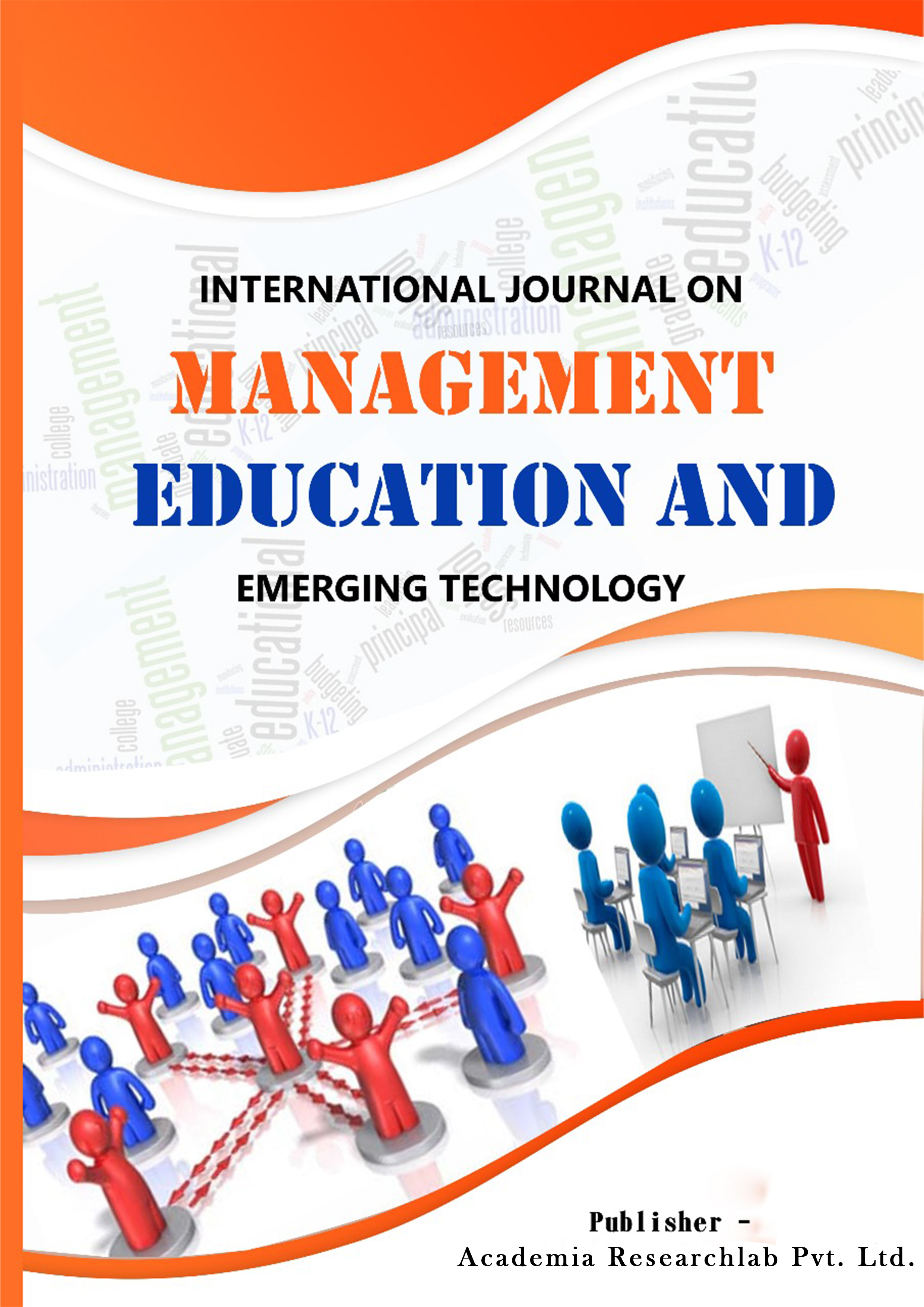Creating Positive Actions Among Youth On The Issue Of The West Philippine Sea
Keywords:
Youth and West Philippine Sea, Participatory Action Research, Youth Community Engagement, Marine Environmental Protection, Appreciative InquiryAbstract
A prior study project, the second part of which is presented here, discussed the social backdrop of the issue of the West Philippine Sea (WPS) and how the youth may play a proactive role in assisting the government in conserving the maritime environment. The study's objective is to convey positive and collective stories regarding young people's responses to issues in the West Philippine Sea. The study employed participatory action research (PAR) qualitative methods. A series of structured activities was conducted during the duration of the forum reflecting the 5D phases of appreciative inquiry (AI) which were contextualized based on the issue to establish youth-led action points. The thematic presentation showed that youth engagement in WPS issues is concentrated on four areas: (1) their support action, (2) marine environment and marine life protection, (3) peace and conflict resolution advocacy, and (4) social awareness and citizen initiative. Government entities with mandates on the problem should engage youths in order for them to participate and collaborate effectively in community initiatives. Engaging youth in national issues not only makes them productive and responsive citizens, but also advocates for peaceful and cordial ties with neighboring countries in the disputed islands, and potential future leaders at the national and local government positions.
References
Admin, M. E. A. E., Dolenc, B., & Wells, E. E. (2012, June 15). Youth community
engagement: A recipe for success. The Journal of Community Engagement and Scholarship (JCES). Retrieved August 2018, from http://jces.ua.edu/youth- community-engagement-a-recipe-for-success/
Alcala, A. C., & Encomienda, A. (2019, August 15). Environmental and economic aspects of the west philippine sea. National Security Review, National Defense College of the Philippines. Retrieved December 13, 2020, from
https://www.academia.edu/40092377/Environmental_and_Economic_Aspects_of_the_ West_Philippine_Sea
Arnold, M. E., Dolenc, B., & Wells, E. (2012, June 15). Youth Community Engagement: A Recipe for Success. JCES. Retrieved from http://jces.ua.edu/youth-community- engagement-a-recipe-for-success/
Asker, S., & Gero, A. (2012). The Role of Child and Youth Participation in Development Effectiveness A Literature Review. YACWA. Retrieved from https://www.yacwa.org.au/wp-
content/uploads/2016/09/Role_of_Child_and_Youth_Participation_in_Development_E ffectiveness.pdf
Bailey, D. W. (2002, October). Review: Janice M. Morse, Janice M. Swanson & Anton J. Kuzel (eds.) (2001). The nature of qualitative evidence. Forum Qualitative Sozialforschung / Forum: Qualitative Social Research. Retrieved from http://nbn- resolving.de/urn:nbn:de:0114-fqs0204194
Ball Foundation. (2010). A guide to the PLAN/ACT/REFLECT Cycle. cdn.ncte.org. Retrieved from https://cdn.ncte.org/nctefiles/ncle/ball_planactreflect.pdf
Baviera, A. S. P., & Jay Batongbacal. (2013, July 5). The West Philippine Sea: The Territorial and Maritime Jurisdiction Disputes from a Filipino Perspective. Asian Center University of the Philippines. Retrieved December 2018, from https://ac.upd.edu.ph/index.php/resources/books-and-monographs/1352-the-west- philippine-sea-the-territorial-and-maritime-jurisdiction-disputes-from-a-filipino- perspective
Bushe, G. R. (2011). Appreciative Inquiry: Theory and Critique. GervaseBushe.ca. Retrieved from http://gervasebushe.ca/AITC.pdf
Carpio, A. (2019, June 20). Carpio calls on the youth to continue defending the west philippine sea. Institute for Maritime and Ocean Affairs. Retrieved from
https://www.imoa.ph/carpio-calls-on-the-youth-to-continue-defending-the-west- philippine-sea/
Cooperrider, D. L., & Whitney, D. K. (2005). Appreciative inquiry: A positive revolution in change. Berrett-Koehler.
Cooperrider, D. L., & Sekerka, L. E. (2003). Inquiry into the appreciable world: Toward a theory of positive organizational change. ResearchGate. Retrieved from
https://www.researchgate.net/publication/265356486_Inquiry_into_the_Appreciable_W orld_Toward_a_Theory_of_Positive_Organizational_Change
Department of Foreign Affairs, Official Gazette, Republic of the Philippines (2012). Retrieved from https://www.officialgazette.gov.ph/2012/04/18/philippine-position-on-bajo-de- masinloc-and-the-waters-within-its-vicinity/
Divan, A., Ludwig, L., Matthews, K., Motley, P., & Tomljenovic-Berube, A. (2017). Research approaches in scholarship of Teaching and Learning Publications: A systematic literature review. Teaching and Learning Inquiry, 5(2), 16–29. https://doi.org/10.20343/teachlearninqu.5.2.3
Gallos, J. V., & Schein, E. H. (2006). Organization development: A Jossey-Bass Reader (Ser.
Jossey-Bass Business & Management Series). Jossey-Bass.
Gillis, A., & Jackson, W. (2002). Research for Nurses: Methods and interpretation. F.A. Davis Co.
Greenwood, D. J., & Levin, M. (2006). Introduction to action research social research for social change (Second). SAGE.
Iwasaki, Y. (2015). The role of youth engagement in Positive Youth Development and Social Justice Youth Development for high-risk, marginalised youth. International Journal of Adolescence and Youth, 21(3), 267–278. https://doi.org/10.1080/02673843.2015.1067893
Jacoby, B., & Associates. (1996). Service-learning in higher education: Concepts and practices. Jossey-Bass.
Latendresse Josée, & Blanchet-Cohen, N. (2010). Engaging Youth Within Our Communities.
Boscoville 2000.
Lewis, B. E. (2007, December). Appreciative inquiry as community engagement. rockymountainpositivechange.org. Retrieved from http://rockymountain.positivechange.org/wp- content/uploads/sites/2/2014/03/07December_ParticipationQuarterly.pdf
Malacañang Records Office. Presidential Decree No. 1599, s. 1978: Establishing an Exclusive Economic Zone and For Other Purposes (1978). Retrieved from https://www.officialgazette.gov.ph/1978/06/11/presidential-decree-no-1599-s-1978/
Manaysay, F. V. L. (2015, October 25). The Filipino youth in geopolitical context: Leveraging the power of social media towards online political engagement in the West Philippine Sea Dispute. Munting Nayon News Magazine. Retrieved from http://muntingnayon.com/102/102515/index.php
Marx, S. (2017). Qualitative research in Stem: Studies of equity, access, and Innovation.
Routledge, Taylor & Francis Group.
Mohr, B. J., & Watkins, J. M. (2002). IMS018 Essentials of Appreciative Inquiry - GCATD. GCATD. Retrieved from https://gcatd.org/resources/Documents/Special%20Interest%20Groups%20(SIGs)/Con sultants/AI%20article.pdf
National Youth Commission. (2010). (rep). NYC National Youth Assessment Study 2010.
Scribd. Retrieved November 2018, from https://www.scribd.com/presentation/92323322/NYC-National-Youth-Assessment- Study-2010
National Youth Commission. (2017). (rep.). 2015 National Youth Assessment Study. National Youth Commission. Retrieved from http://yptoolbox.unescapsdd.org/wp- content/uploads/2017/08/National-Youth-Assessment-Study.pdf.
Office of the President of the Philippines. (2012). Administrative Order No. 29: Naming the West Philippine Sea of the Republic of the Philippines, and for other purposes. Manila: Malacañang Records Office. Retrieved from https://www.officialgazette.gov.ph/2012/09/05/administrative-order-no-29-s-2012/
Permanent Court of Arbitration. (2016, July 12). The South China Sea Arbitration (The
Republic of Philippines v. The People's Republic of China). PCA. Retrieved n.d., from https://pca-cpa.org/en/cases/7/
Pitlo III, L. B. (2013, October 8). The Philippines and the West Philippine Sea. The Diplomat. Retrieved from https://thediplomat.com/2013/10/the-philippines-and-the- west-philippine-sea/
Pittman, K. J. (1991, July). Promoting Youth Development: Strengthening the role of Youth Service and Community Organizations. DigitalCommons@UNO. Retrieved from https://digitalcommons.unomaha.edu/slcek12/42
Ramos, G., & Schleicher, A. (2018). Global competency for an Inclusive World - OECD. Organisation for Economic Co-operation and Development. Retrieved from https://www.oecd.org/education/global-competency-for-an-inclusive-world.pdf
Rowland, S. L., & Myatt, P. M. (2014). Getting started in the scholarship of teaching and learning: A “HOW TO” guide for science academics. Biochemistry and Molecular Biology Education, 42(1), 6–14. https://doi.org/10.1002/bmb.20748
Shuayb, M., Sharp, C., Judkins, M., & Hetherington, M. (2009). Using Appreciative Inquiry in Educational Research : Possibilities and Limitations Report.
https://www.semanticscholar.org. Retrieved from https://www.semanticscholar.org/paper/Using-Appreciative-Inquiry-in-Educational- Research-Shuayb-Sharp/8ab5ff4504a828f387fc08d4bb481e506fe60341#citing-papers
United Nations. (1982, December 10). United Nations Convention on the law of the sea.
Retrieved from https://www.un.org/Depts/los/convention_agreements/texts/unclos/unclos_e.pdf United Nations Children Fund (UNICEF) and the United Nations Programme on Youth. (2011, August). Fact sheet: Youth participation - United Nations. United Nations Department of Economic and Social Affairs Social Inclusion. Retrieved from https://social.un.org/youthyear/docs/youth-participation.pdf
United Nations Security Council. (2017, October 16). UN Security Council resolution 2250 on youth, peace and security launched regionally in Darfur. UNDP in Sudan. Retrieved from https://www.sd.undp.org/content/sudan/en/home/presscenter/articles/2017/10/16/un- security-council-resolution-2250-on-youth-peace-and-security-launched-regionally-in- darfur.html?utm_source=EN&utm_medium=GSR&utm_content=US_UNDP_PaidSea rch_Brand_English&utm_campaign=CENTRAL&c_src=CENTRAL&c_src2=GSR& gclid=Cj0KCQjw0umSBhDrARIsAH7FCoddCEeAnoiLapFYvU_e2Q9xXjRXb0Z7EI 6VeVWi2c7c4AYoDVU19N8aAqw7EALw_wcB Vain, C. (2021, September 2). Tips for engaging with stakeholders. CPD Online College. Retrieved from https://cpdonline.co.uk/knowledge-base/business/engaging-with-stakeholders/
Watkins, J. M., Mohr, B. J., & Kelly, R. (2011). Appreciative inquiry: Change at the speed of imagination. Jossey-Bass.
Weiss, J. (2020). What is youth political participation? literature review on youth political participation and political attitudes. Frontiers in Political Science, 2, 1–13. https://doi.org/10.3389/fpos.2020.00001
Wimpenny, K., & Savin-Baden, M. (2012). Exploring and implementing participatory action synthesis. Qualitative Inquiry, 18(8), 689–698. https://doi.org/10.1177/1077800412452854
Zeldin, S., Camino, L., & Calvert, M. (2003). Toward An Understanding of Youth in Community Governance: Policy Priorities and Research Directions. Social Policy Report, 17(3), 1–20. https://doi.org/10.1002/j.2379-3988.2003.tb00022.x
Additional Files
Published
How to Cite
Issue
Section
License
Copyright (c) 2023 International Journal on Management Education and Emerging Technology(IJMEET)

This work is licensed under a Creative Commons Attribution-NonCommercial-NoDerivatives 4.0 International License.





